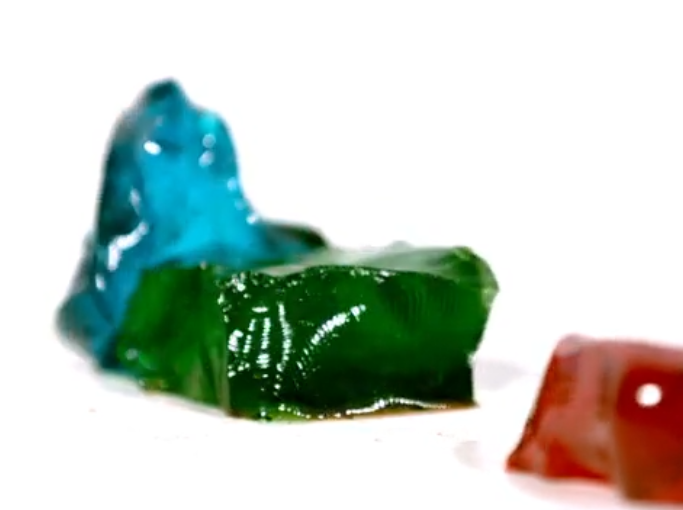Gelatin is a protein material derived from natural collagen.
This is the definition of "Gelatin" by the GMIA protocol (Gelatin Manufacturers Institute of America) (1):
Gelatin is the product obtained from the acid, alkaline, or enzymatic treatment of collagen, the chief protein component of the skins, bones, and connective tissues of animals, including fish and poultry. These animal sources shall have not been exposed to pentachlorophenol.

Type A gelatin is produced by the acid processing of collagenous raw materials and exhibits an isoelectric point between pH = 7 and pH = 9. Type B gelatin is produced by the alkaline or lime processing of collagenous raw materials and exhibits an isoelectric point between pH = 4.6 and pH = 5.2. Mixtures of Types A and B as well as gelatins produced by modifications of the above mentioned processes might exhibit isoelectric points outside of the stated ranges. (Food Chemicals Codex).
The principal raw materials used in gelatin production are cattle bones, cattle hides, and porkskins. Several alternative sources include poultry and fish.
Extraneous substances, such as minerals (in the case of bone), fats and albuminoids (found in skin), are removed by chemical and physical treatment to give purified collagen. These pretreated materials are then hydrolyzed to gelatin which is soluble in hot water.
Collagen may be considered an anhydride of gelatin. The hydrolytic conversion of collagen to gelatin yields molecules of varying mass: each is a fragment of the collagen chain from which it was cleaved. Therefore, gelatin is not a single chemical entity, but a mixture of fractions composed entirely of amino acids joined by peptide linkages to form polymers varying in molecular mass from 15,000 to 400,000
Nutritionals (2)
| | Type A | Type B |
| Moisture (%) | 10.5 +/- 1.5 | 10.5 +/- 1.5 |
| Fat (%) | 0 | 0 |
| Carbohydrates (%) | 0 | 0 |
| Ash (%) | .5 +/- .4 | 1.5 +/- .5 |
| Sodium (ppm) | 500 +/- 200 | 3600 +/- 1400 |
| Phosphorous (ppm) | 1 +/- 200 | |
| Iron (ppm) | 4 +/- 2 | 15 +/- 10 |
| Lead (ppm) | .002 +/- .002 | .005 +/- .002 |
| Zinc (ppm) | 1.5 +/- .5 | 5 +/- 3 |
| Nitrogen (%) | 16.2 +/- .3 | 16.2 +/- .3 |
| Calcium (ppm) | 90 +/- 30 | 900 +/- 100 |
| Potassium (ppm) | 125 +/- 50 | 330 +/- 50 |
| Calories / 100 grams | 360 | 360 |
References____________________________________
(1) http://gelatin-gmia.com/images/GMIA_Official_Methods_of_Gelatin_Revised_2013.pdf
(2) http://gelatin-gmia.com/images/GMIA_Gelatin_Manual_2012.pdf
![]() Gelatin (Food)
Gelatin (Food) 


